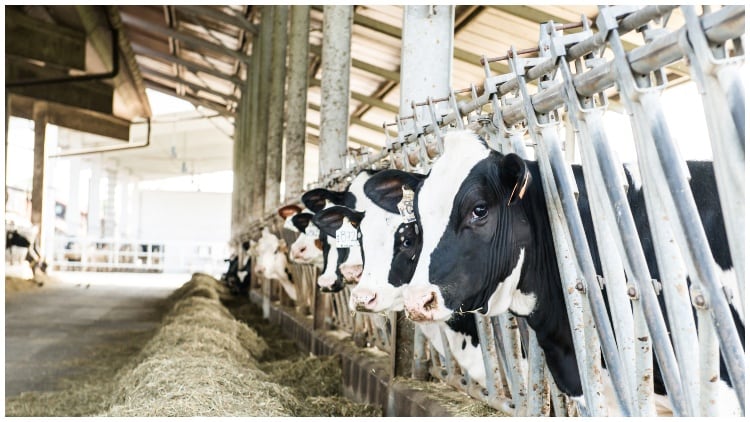In the UK, the affects of COVID, the war in Ukraine, Brexit and the cost-of-living crisis continue to be felt keenly. As a result, supply chains are having to adapt to the constant changing landscape, which in turn, is causing financial pressure on margins.
Where there are difficulties, risks increase – especially as there are those who will seek to take advantage of any situation for personal gain.
Summary:
- There are numerous ways supply chains are at risk from fraud and financial crime.
- Bribery is a threat all businesses should be alert to.
- The criminal side of bribery is about offences committed being prosecuted by the authorities, whereas the civil law governs the way in which a private action can be brought by a victim of bribery.
- There is no legal obligation to self-report incidents of bribery, but there are advantages in doing so.
- For those wishing to retain control and confidentiality a civil investigation may be preferable.
- There are ways to mitigate against the risk of bribery within your supply chains and such processes also offer protection against criminal liability.
What are the risks?
In the food and drink manufacturing sector, there are a multitude of risks to supply chains involving fraud and financial crime. This is particularly so in the UK, given the globalisation of our food supply, where complex supply chains permeate even locally made products as a result of different ingredients being sourced from all over the world.
According to Statista,1 approximately 58% of food consumed in the UK originates here, with just under a quarter of all food consumed in the UK sourced in the EU. But, as a result of our truly global tastes here in the UK, we have approximately 160 countries from all over the world contributing to our food supply and this can lead to vulnerabilities in respect of fraud and financial crime.
Identified risks
The following risks have been identified as key supply chain vulnerabilities:
- Bribery and corruption.
- Food fraud e.g. adulteration, mislabeling.
- Dealing with individuals or entities that appear on the UK Sanctions List.
- Dealing with individuals or entities from countries that appear on the Financial Action Task Force’s (‘FATF’) black or grey lists.
- Dealing with individuals or entities that do not share your own approach to issues such as sustainability and modern slavery.
Dealing with suppliers that fall into one of the above categories or conduct themselves on the wrong side of the law can open your business up to serious financial and reputational damage. It only takes one incident to undo years’ worth of goodwill associated with your business, and although it takes a lot of work to ensure robust supply chains, prevention is better than cure.
Bribery
In this article, we will focus on bribery in supply chains as this can certainly be an issue that is sometimes overlooked. Far too many businesses do not see this as a credible threat and consider this is something more likely to happen in other countries or more glamourous sectors. However, it is a threat and something that can often happen regularly on a relatively small scale.
What is bribery?
In the UK, the Bribery Act 2010 (the ‘Act’) governs the criminal side of bribery. For example, the Act creates a criminal offence of bribing another person; the criteria for which is as follows:
“A person is guilty of an offence if they offer, promise or give an advantage, directly or indirectly, to another person, intending that a person is rewarded for, or induced to, perform a relevant function or activity improperly.”
Although, the underlying goal of the Act is to encourage businesses to invest in processes and procedures to prevent bribery, criminal prosecution may follow. There is no legal obligation to self-report cases of bribery to the Serious Fraud Office (SFO), however, there are significant advantages to self-reporting including:
- The possibility of securing a Deferred Prosecution Agreement (DPA), thereby avoiding a corporate criminal conviction.
- A reduction in financial penalties.
- Reputational advantages in coming clean and seeking to ‘do the right thing’.
The criminal side of bribery is about offences committed being prosecuted by the authorities, whereas the civil law governs the way in which a private action can be brought by a victim of bribery i.e., an unwitting principal in a principal/agent relationship.
Tort of bribery
The civil law recognises the ‘tort of bribery’ for which three main elements must be demonstrated as follows:
- Payment to the agent of the person with whom the third party is dealing.
- The third party makes the payment knowing that the payee is the agent of the person with whom they are dealing.
- The payment is not disclosed to the principal.
It is not necessary to show the payment was made with a corrupt motive or intention to persuade or influence the agent; the payment is presumed to have been corrupt if the principal was unaware. There is also no need to show the principal suffered a loss as a result of the agent being bribed. However, compensation may be limited to the amount of the bribe (unless a loss in excess of the bribe can be proved).
Other claims may also be linked to a claim in bribery and may carry advantages in terms of recovery. For example, an action for breach of fiduciary duty may be available against an agent leading to a claim for an account of profit if relevant. Further, a claim for dishonest assistance may also be available against the third party paying the bribe. Other claims arising may be breach of contract against the agent, breach of trust and/or knowing receipt, inducing breach of contract, and/or the torts of deceit or conspiracy.
For those organisations operating with suppliers crossing international borders, understanding how the law can help regulate good behaviour and alerting counterparties to how your organisation could take action against bribery, even if authorities do not, is a powerful deterrent to maintain a robust supply chain.
Why might you choose to pursue a claim under the civil law?
A victim of bribery has the option to report the incident to the SFO, but the victim will inevitably be drawn into a criminal investigation. This can carry all sorts of reputational and regulatory issues. The civil route offers a chance of financial recovery, and the benefit of the victim being in control of the investigation rather than handing it over to the authorities.
The victim can control the process and actions and can seek to keep the matter confidential in certain circumstances. The burden of proof is lower in the civil courts than in a criminal prosecution (i.e., balance of probabilities - typically seen as 51% - vs beyond reasonable doubt - typically seen as more than 70%) which may also be a relevant factor. However, with control comes cost, as the victim will have to foot the bill of any investigation and subsequent legal proceedings. Arguably, the SFO/police also have wider powers of investigation, although the civil court have various investigative tools at their disposal, such as Norwich Pharmacal Orders and search orders.
How to protect against bribery in your supply chains
Given the serious consequences which can flow from bribery (corporate criminal conviction, fines, reputational damage) and the cost of carrying out your own investigation, prevention is clearly better than cure. This is particularly so, given that the Act offers a defence to the offence of bribery where an organisation can prove that it had ‘adequate procedures’ in place to prevent bribery.
In the food industry, supply chains can be particularly long and complex, with suppliers involved from all over the world; therefore, it is crucial that businesses invest time in getting to know their suppliers. This can be done via the following methods:
- Onboarding.
- Ongoing due diligence.
- Contract monitoring and contractually requiring updates when there is a change of ownership or senior management.
Onboarding
Clearly, it is important to get the process right from the outset. This helps to set expectations for new suppliers and ensures that you are both aligned in terms of approach. As part of this process, it is prudent to request the completion of a due diligence questionnaire covering key details of the company, including its operations (i.e., a supplier’s financial and trading history) and personnel (i.e., the background and experience of those running the business). There are independent checks that you can carry out on potential suppliers, such as Creditsafe reports for limited companies. It is also worth investigating any potential connections to personnel within your own organisation e.g., former employees of the supplier and ensuring conflict of interest declarations are provided by the proposed supplier.
At the same time, it would be appropriate to include copies of your organisation’s policies relating to fraud prevention, financial crime, bribery and corruption, cybercrime prevention, and other ethical topics relevant to the food industry such as carbon neutrality, animal welfare and human rights. By doing this, your organisation makes clear its stance on such issues and sets expectations for behaviours from the outset of the relationship.
Of course, due diligence should also cover suppliers further down the chain i.e., suppliers of your supplier to ensure that ingredients being utilised in the final product (and those producing the ingredients) meet your standards and requirements, and to guard against fraud and financial crime within the supply chain. You should be particularly cautious when dealing with suppliers based in jurisdictions that take a very different approach to the UK.
Ongoing due diligence
Regular auditing of existing suppliers is essential to ensure your supply chains remain protected against the risk of fraud and financial crime. Such auditing may uncover changes in ownership or management that does not accord with your principles or opens the business up to the risk of fraud, bribery or corruption. For example, have the new owners suffered any adverse publicity in connection with other businesses; have they been subject to any sanctions? These issues will also be relevant to current suppliers where there is no change of ownership. Regularly checking industry news, or regulatory reports is prudent.
New ownership/management may result in relationships that could trigger a conflict of interest or potential for bribery or other financial crime. Contracts should contain obligations to declare conflicts of interest.
Contract management/monitoring
In bribery cases, often the issue of bribery is at the outset to enable a party to onboard themselves into your supply chain through nefarious means. Sometimes, parties are able to achieve this and then, given their dishonesty, the chances are high they will continue to try and defraud the customer. For those reasons, it is important to ensure you continue to monitor supplier contractual performance to check whether:
- They charge what they are meant to in accordance with contractual terms.
- If any failure in their performance reflects any misrepresentation of their abilities and experience when tendering for a contract with you.
- They undertake checks on the product they supply in accordance with contractual requirements.
- If their financial position declines in contrast to the work they have secured from your organisation.
- If the senior management and ownership of the supplier remain the same as when the party tendered for your orders.
Often fraud occurs after a party is awarded a contract as they know the diligence is often front-end loaded to check for irregularities. It is therefore important to maintain a review of contractual performance and supplier information during the contract.
Keep bribery top of mind
The key message is to keep the risk of bribery in mind at all stages of dealing with suppliers and ensure that all counterparties are aware of your organisation’s understanding of how the civil law of bribery can protect and help scrutinise suppliers, so to maintain a robust supply chain with in-built deterrents for rogue parties.
For more information about bribery in food, you can reach out to the authors, here.
References
- www.statista.com/topics/7229/food-industry-in-the-uk/#topicOverview




